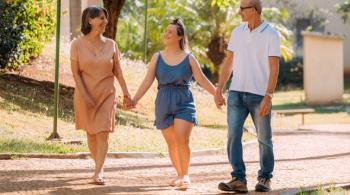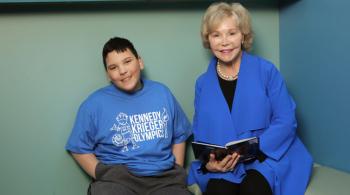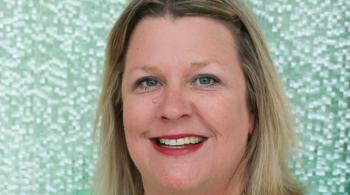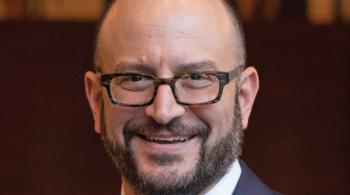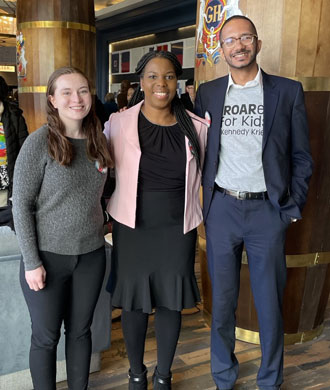
By Máiréad Deacy, BA, Diogo Fortes, BA, and Anthony Gioia, PhD, MCDD Trainees
Each year, the Maryland Developmental Disabilities (MDD) Coalition sponsors Developmental Disabilities Day at the Legislature (DD Day), an opportunity for participants to educate state legislators in the capital on crucial issues affecting individuals with intellectual and developmental disabilities (IDD), their caregivers and their families. On February 21, 2024, we had the pleasure of attending this year’s DD Day as MCDD trainees, alongside Kennedy Krieger Institute staff members, other trainees and self-advocates.
To begin the day, we gathered at the Graduate Hotel in Annapolis, Maryland. The hotel was filled, leading to the need for an overflow room to accommodate attendees listening to speeches that morning. However, far from chaotic, the bustling atmosphere was vibrant, welcoming and energizing. The rooms were occupied by self-advocates, their families, direct support professionals, service providers, and other allies to the IDD community, spanning all ages, resulting in an impressive turnout. Prior to DD Day, self-advocates had emphasized the importance of remembering the supportive team standing behind us as we advocate on that day, and their presence was immediately evident.
Following breakfast, we had the exciting opportunity to hear directly from legislative leaders, the lieutenant governor, the governor, delegates, senators, and leaders of the IDD community. The unmistakable message conveyed was that the rights of the IDD community will receive attention this year. It was such a special and refreshing opportunity to be in a room filled with people united in the fight for disability rights. In addition to important legislative issues, the morning also featured artwork created by children with IDD, further displaying the beauty and contributions of the community, their vision for a more just world and brighter future ahead.
After the morning speeches concluded, more than 35 trainees and self-advocates from People On the Go (POG) Maryland, a statewide self-advocacy group run for and by people with IDD, divided into small groups to meet with individual legislators or their staff. Each meeting was led by a self-advocate, and in total, we met with 14 elected officials throughout the morning. Meetings consisted of discussions related to current bills introduced in the House or Senate, and the groups expressed support for legislation that promotes greater inclusion of people with disabilities. Together, we were able to advocate for priority legislation bills, including support for access to attorneys, advocates and consultants for special education programs, voter rights, updated terminology that excludes outdated or offensive language, expanded funding for the Division for Rehabilitation Services and numerous other bills aimed at removing barriers for the IDD community. POG members made a significant impact by sharing their individual experiences and stories, and the elected officials appeared highly receptive and supportive.
Following a lengthy morning of meetings with legislators, we proceeded to St. Anne’s Parish Hall for a lunch-and-learn session facilitated by self-advocates, state officials and federal policy experts. First, we heard from Cody Drinkwater and Josh Delclos, both self-advocates and POG members. They reflected upon their journeys towards becoming self-advocates, and what it means to them to advocate for themselves. As a cornerstone of the disability rights movement, self-advocacy is key in setting the priorities for action and legislation that most reflect a person’s needs and desires. Beyond its effectiveness, the process of advocating for yourself is empowering and confidence-building, a feeling both self-advocates echoed. The responsibility of advocates supporting others is to amplify the voices of self-advocates. As clinical and research trainees, we also have a duty to ensure that individuals who desire to advocate for themselves receive the necessary support.
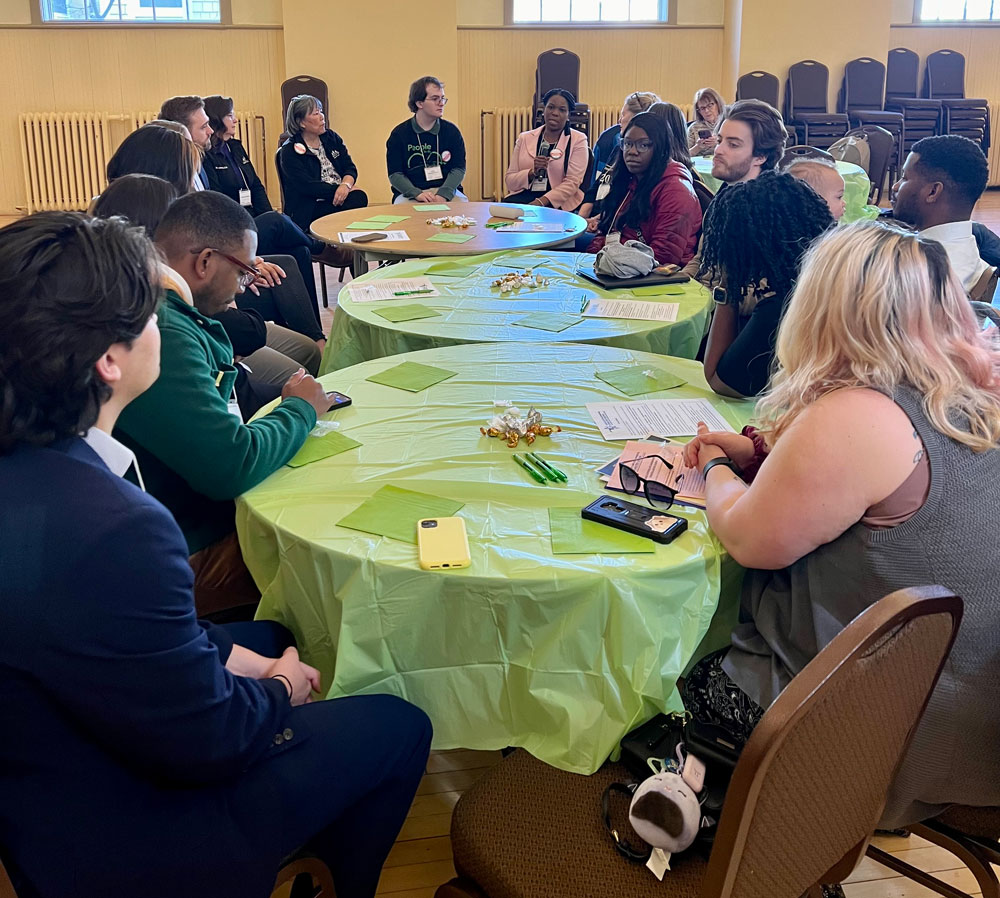
Next, Lisa Belcastro, Deputy Secretary of the Maryland Department of Disabilities (the only cabinet-level department in the nation dedicated specifically to disabilities), discussed state-level initiatives aimed at promoting community inclusion for individuals with IDD. For instance, we learned about a recent initiative focused on enhancing inclusivity in playgrounds, which are vital community spaces where children of all abilities should have the opportunity to play and socialize with their peers. We left the event with the realization that although the state plays a crucial role in advancing the objectives of the IDD community, meaningful change requires active engagement, not passivity. Grassroots efforts like DD Day, coupled with the ongoing dedication of groups such as POG and the DD Council, bring attention to the ongoing inequities faced by the IDD community and highlight the essential priorities for creating an inclusive and accessible future for all.
At last, the lunch-and-learn session concluded with a presentation from Kevin Ryle, a policy fellow, and Liz Weintraub, a senior advocacy specialist with the Association of University Centers on Disabilities (AUCD), discussing forthcoming federal legislation impacting the lives of individuals with IDD. A notable federal policy priority for AUCD is the upcoming reauthorization of the Autism CARES Act, which supports various research initiatives, prevalence tracking, service provision efforts, and the Leadership Education in Neurodevelopmental and Related Disabilities (LEND) program. Furthermore, bills advocating for equitable access to voting for individuals with disabilities (Accessible Voting Act) and preventing reductions in benefits for people with disabilities upon marriage (Eliminating the Marriage Penalty in SSI Act) are currently under consideration in various committees or being heard. The presentation on the federal perspective ended with a call to vote and engage with elected officials, emphasizing that sustained engagement, organized efforts, and vocal advocacy are paramount, regardless of political affiliation, at both the state and federal levels.
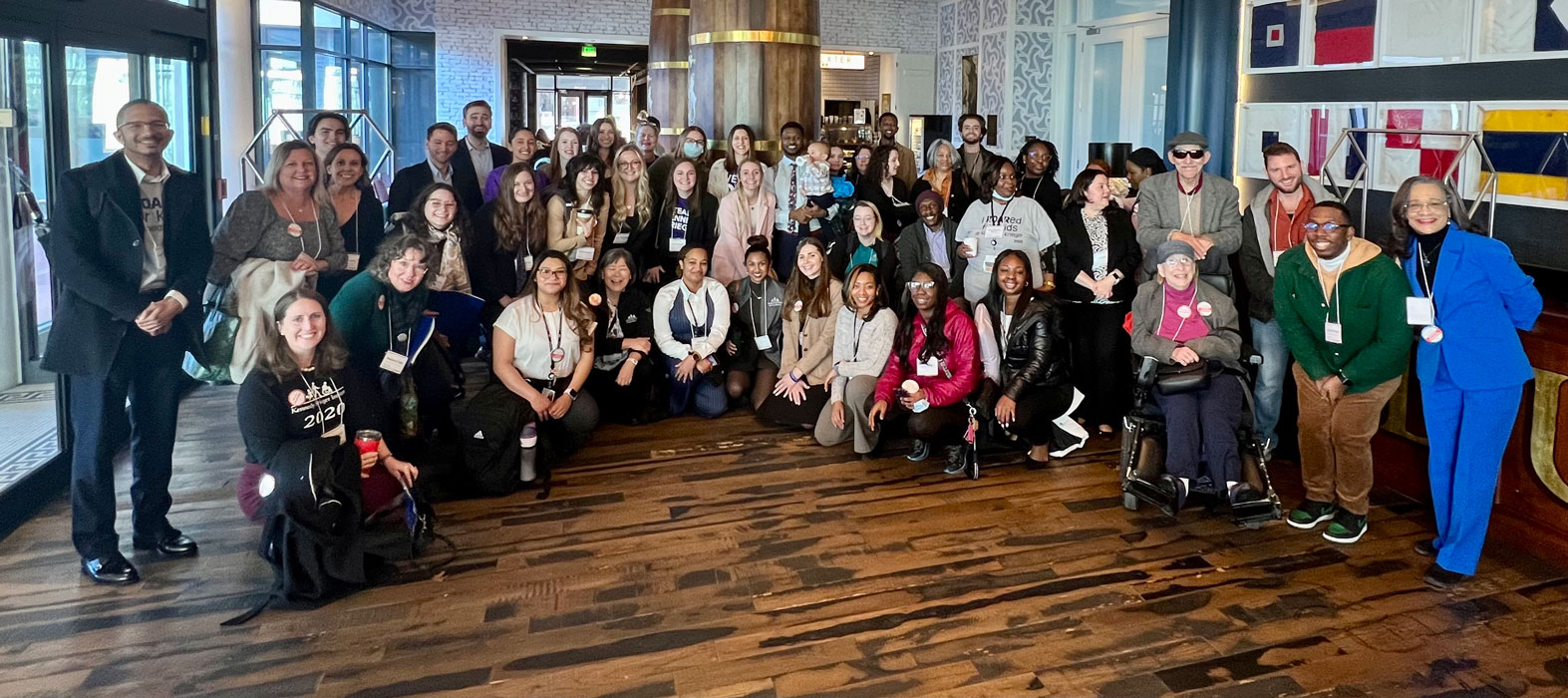
DD Day served as a platform for storytelling, highlighting and celebrating the genuine experiences of individuals in the IDD community, fostering connections, and, notably from our standpoint as trainees, prioritizing active listening. Through this, we gained a deeper appreciation for the essence of advocacy and ensured that the voices of the IDD community resonated loud and clear across the state of Maryland this year.


